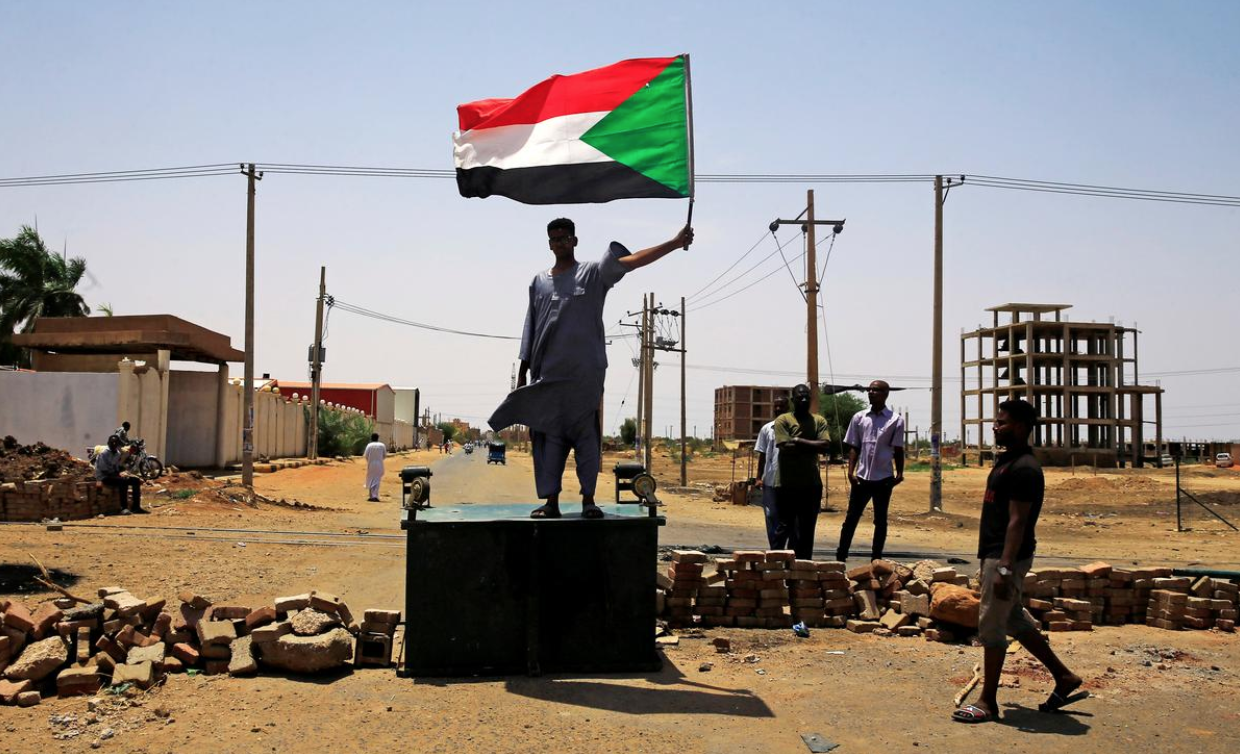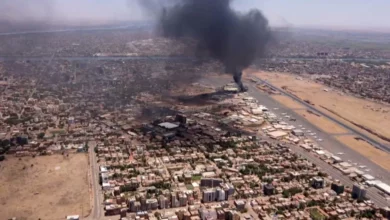
KHARTOUM (Reuters) – Hundreds of Sudanese demonstrated in state capitals on Thursday, seeking to revive a push for civilian rule in ongoing tumult since the overthrow of former President Omar al-Bashir more than two months ago.
There were gatherings in each of the state capitals of Wad Madani, Al-Ubayyid and Port Sudan to call for the Transitional Military Council to relinquish power.
Dozens also demonstrated in the national capital Khartoum, including employees from the private Bank of Khartoum, the country’s largest, chanting “Civilian!” and waving Sudanese flags.
An opposition-linked doctors’ committee said security forces detained Health Ministry employees also protesting for civilian rule. The military council did not immediately comment.
Talks between the military and an opposition alliance collapsed when security forces stormed a protest sit-in outside the Defense Ministry on June 3, killing dozens.
The two sides had been wrangling for weeks over whether civilians or the military would control a new sovereign council to lead the Sudan to elections after the military deposed and detained long-time president Bashir on April 11.
The prolonged chaos has concerned world powers including the United States, which sanctioned Sudan under Bashir over its alleged support for militant groups and the civil war in Darfur.
The opposition accused the military council of ordering the sit-in’s bloody dispersal and wants an international inquiry. Witnesses said the paramilitary Rapid Support Forces, headed by the military council’s deputy, carried out the violence.
The military said a crackdown on criminals spilled over to the sit-in area, but some officers have been detained for presumed responsibility.
On Thursday, the military council named Abdullah Ahmed Abdullah as public prosecutor, judicial sources told Reuters.
Abdullah had recently been appointed prosecutor for Khartoum, a role in which he was overseeing an investigation into the storming of the sit-in, state news agency SUNA said.
The military council called for a renewal of negotiations on Wednesday, but there was no response from the opposition.
There have been no direct talks since the dispersal, but Ethiopian Prime Minister Abiy Ahmed and the African Union have been trying to mediate. An envoy for Abiy would soon return to Khartoum with proposals for both sides, opposition sources said.
Stability in the nation of 40 million is crucial for a volatile region struggling with conflict and insurgencies from the Horn of Africa to Egypt and Libya.
Reporting by Khalid Abdelaziz; Writing by Yousef Saba; Editing by Andrew Cawthorne




